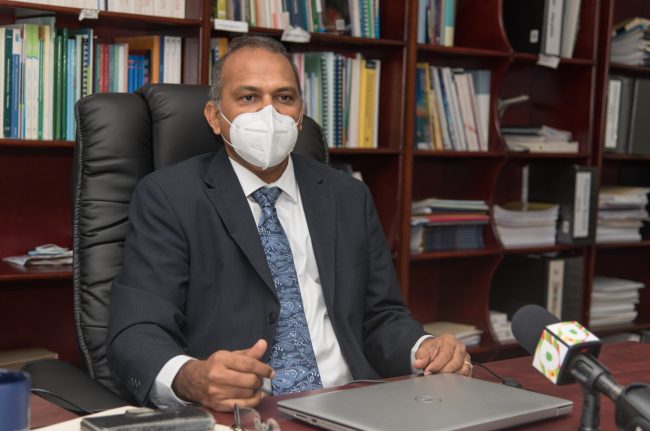(INEWS)An integrated programme by the Health Ministry will now focus on postpartum depression in expecting and new mothers, by offering screening and resources to detect such signs.
Health Minister, Dr Frank Anthony explained on Friday that offering comprehensive care in maternal health includes not only services during delivery but during prepartum and postpartum stages.
This programme was conceptualised after realising that women in the country suffer from postpartum depression.
“One of the things that we’re doing is improving the care we give to mothers, so we have focused a lot on pregnancy to make sure that delivery is safe. But we also recognise that after delivery, some mothers would develop postpartum depression. We recognised this and we want to create a programme to prevent depression,” he shared.
Dr Anthony also clarified that postpartum depression can occur from as early as pregnancy and can last up to 12 months. As such, he cited the importance of screening and resources to address such symptoms.
“From the scientific literature, what we know is that it doesn’t start then. It would start in the first, second or third trimester or it might have an earlier genesis because some of these patients might have a history of depression. If that is the case, when you’re offering care, you need to ensure that you’re also screening and checking for symptoms of depression during this period.”
If depression is detected, the Ministry is aiming to provide counselling and in cases where needed, anti-depression medications. To roll out the programme, primary healthcare workers will also be trained.
“It is going to be a comprehensive programme. It’s a joint effort between a team of psychiatrists that we have in the Ministry and the team that is working on obstetrics care. They have come up with this programme. We would be training a lot of our primary healthcare workers,” Dr Anthony positioned.
The Mayo Clinic details that some new mothers experience a more severe, long-lasting form of depression known as postpartum depression. Sometimes it’s called peripartum depression because it can start during pregnancy and continue after childbirth. Rarely, an extreme mood disorder called postpartum psychosis also may develop after childbirth.
Postpartum depression symptoms may include depressed mood or severe mood swings; excessive crying; difficulty bonding with your baby; withdrawal from family and friends; loss of appetite or eating much more than usual; insomnia or sleeping too much; overwhelming tiredness or loss of energy; loss of interest in activities; intense irritability and anger; hopelessness; feelings of worthlessness, shame, guilt or inadequacy; reduced ability to think clearly, concentrate or make decisions; restlessness; severe anxiety and panic attacks among others.










